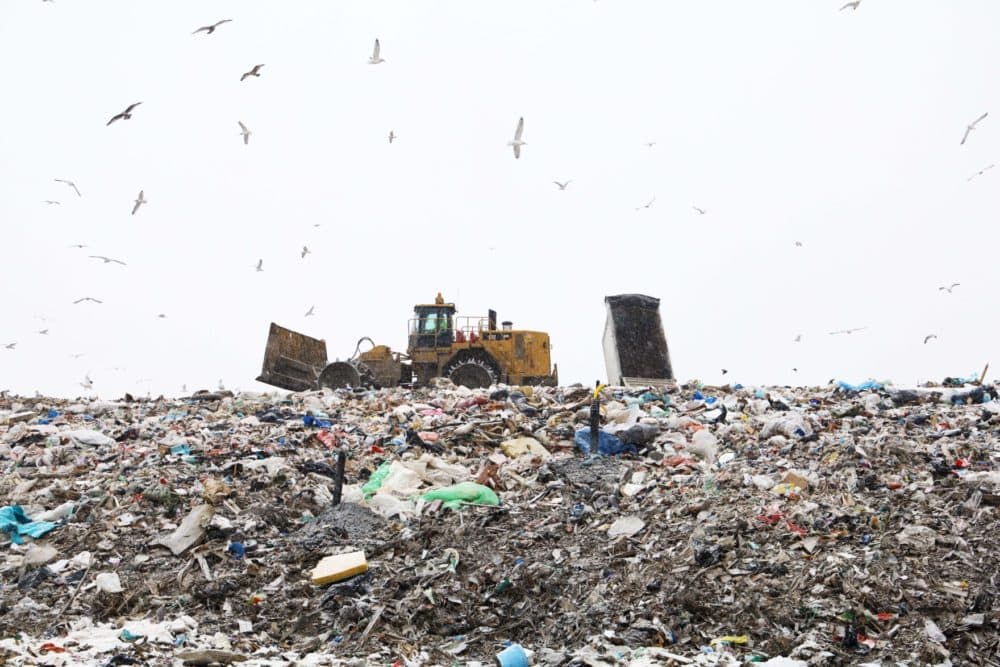Advertisement
Maine will close loophole that allows out-of-state waste into state landfill

Maine lawmakers will close a loophole that has allowed hundreds of thousands of tons of waste from across New England into the state-owned landfill in Old Town.
The Senate unanimously approved the proposal late last week. The House of Representatives approved the bill in a 102-25 vote on Monday, and a spokesperson for Gov. Janet Mills said on Tuesday that she'll sign it.
The state-owned Juniper Ridge Landfill was originally meant to be reserved for in-state waste. But companies have long taken advantage of a loophole that allows waste from out of state to be reclassified as Maine-generated if it’s first processed at a Lewiston business called ReSource, as a recent Maine Public investigation showed.
With that new definition, ReSource has sent an average of about 190,000 tons of waste — roughly 90% of it from Massachusetts and New Hampshire — to Juniper Ridge each year from 2011 to 2020, according to data it reports to the Maine Department of Environmental Protection. That's about the weight of two aircraft carriers each year.
That has concerned environmental activists and neighbors of the landfill including the Penobscot Nation.
They worry the large volumes of out-of-state waste are increasing the speed at which Juniper Ridge is being filled. The landfill is on pace for an expansion in six years.
Activists also worry that the imports are adding potential sources of contamination to the liquid runoff that comes out of the landfill. While that leachate is collected and treated at a nearby wastewater plant, that facility can’t fully remove a dangerous class of chemicals known as PFAS before the water is discharged into the Penobscot River.
“The volume of construction debris coming into Maine now averages about 16 big rig trucks worth every day,” said Democratic Sen. Anne Carney of Cape Elizabeth, who sponsored the bill to close the loophole, during a floor speech last week. “This loophole endangers the drinking water and environment of nearby communities, and threatens sites of historical, cultural and spiritual significance for the Penobscot Nation.”
The bill, LD 1639, will limit how much waste a facility such as ReSource can classify as Maine-generated — and thus, send along to Juniper Ridge — to whatever amount it has accepted from within Maine each year. Under a last-minute amendment, that change won’t take effect until next February.
It will also phase out an exemption that ReSource has received from Maine’s recycling rules, add “environmental justice” as a standard for future waste facilities to meet and force the state to review its contract with the company that runs Juniper Ridge, Casella Waste Systems of Vermont.
Casella and ReSource have opposed Carney’s bill, arguing that the most reliable supply of materials needed to engineer the landfill come from out of state, including finely ground debris that landfill workers layer over raw trash each day and bulky objects that they use to stabilize sewage sludge when it’s buried.
Environmental groups including the Natural Resources Council of Maine and Maine Conservation Voters celebrated the passage of LD 1639 on Tuesday.
“Lawmakers have confirmed what Maine people have been saying for years: Maine cannot be treated as a dumping ground for New England,” said Sarah Nichols, who oversees waste programs for NRCM. “This is a prudent action that responds to a growing problem before it got any worse.”
This story is part of the New England News Collaborative. It was originally published by Maine Public.